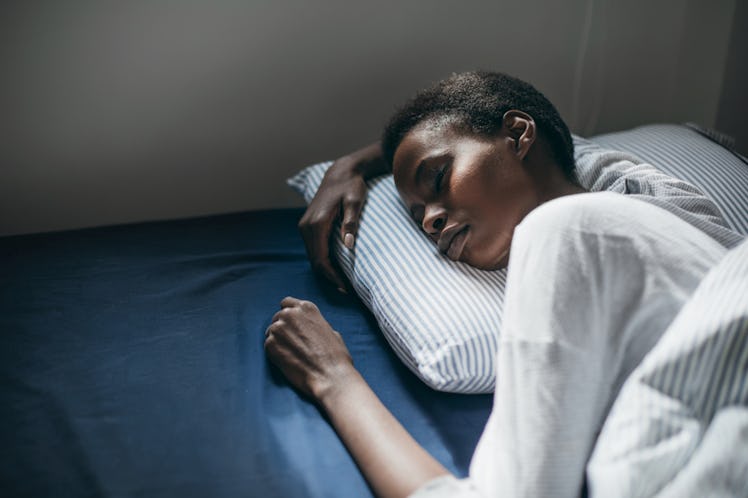
6 Subtle Red Flags That Could Mean You’re Sleeping Way Too Much
Have you ever woken up after an unusually long night of sleep and felt, well, kind of awful? Whether you roll out of bed feeling super dehydrated, nursing a throbbing a headache, or you simply feel stiff as a board, there are reasons why your body might be feeling off after slumbering for a long spell. And rest assured, your body will do its best to alert you to those signs that you're sleeping too much, and they're something you want to pay attention to for the sake of your well-being.
While it's true that, most of the time, we talk about not getting enough sleep, sleeping too much can prove to be just as serious an issue. There is, in fact, a condition called hypersomnia, and those affected — about 2 percent of the population, according to the American Sleep Association — need about 10 to 12 hours of sleep per night to feel well-rested. So, if you find yourself clocking in the recommended seven to eight hours of sleep per night, but you still feel fatigued, there could be other issues at hand that you should speak to a doctor about.
Here are a few other red flags that might mean you're spending a little too much time under the sheets.
01You're Feeling Emotionally Low
Sleeping a lot, and the constant feeling of not wanting to get out of bed, can be an indicator that you might be going through a rough emotional time, or it could be a more serious sign that you're dealing with depression. Sleep and depression are two things that can definitely go hand in hand, so keep that in mind if you find your moods and sleep schedule seem to correlate.
In fact, there's actually research that supports the idea that while quality rest is absolutely essential for mental and physical well-being, sleeping too much can actually activate feelings of depression, according to the American Academy of Sleep Medicine.
02You're Getting Headaches When You Wake Up
It's not entirely clear what the correlation actually is between sleeping too long and getting headaches, but it does appear to be a common overlap. Reader's Digest reports that morning headaches could have something to do with the way your brain functions during sleep, or it may indicate that you need to eat a more nourishing breakfast or drink more water.
03You Still Feel Exhausted All The Time, Despite All That Rest
If you're still feeling sleepy, even though you consistently get your fair share of Z's at night, it might be a sign that you need to try cutting back your time in bed by an hour or two.
The fatigue and lethargy might actually just have to do with decreased activity and movement throughout the day, so if cutting back your snooze time isn't helping, try a casual jog around the block each day, and see how it affects your energy levels.
04You've Got Body Aches
Ever wake up after a long, long night of sleep, and your body feels like a stale pretzel? Well, if this is happening to you a lot, it might mean you're sleeping too much. Research shows that too much sleep can increase bodily inflammation in the long run, especially in women, which could be what's causing your aches and pains.
05You're Forgetting Things All The Time
Feeling some mental fog or lack of focus? Forgetting where you put those keys (again)?
Believe it or not, too much sleep has also been linked to worsened cognition and thinking skills. Some sleep experts say that seven hours is, in fact, the sweet spot for your body and mind.
06You're Sleeping Through Your Alarm Nearly Every Morning
This one might be obvious, but seriously, if you're still having trouble getting up in the morning, despite getting over eight hours of rest throughout the night, this might be a good time to evaluate what's going on, and speak to your doctor if you're having trouble figuring out the issue on your own.